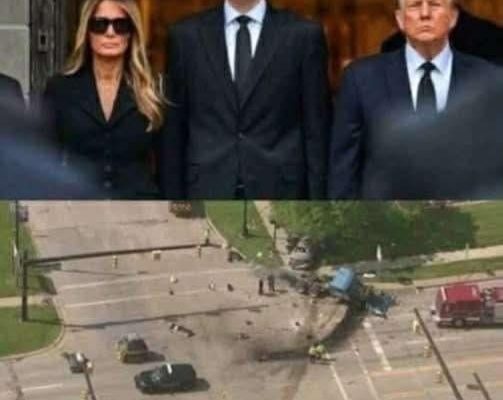Just as former U.S. President Donald J. Trump appeared to be regaining political momentum ahead of the 2024 election, he was hit with one of the most consequential legal challenges in American history. On Thursday, Special Counsel Jack Smith announced a sweeping federal indictment charging Trump with multiple crimes tied to his efforts to overturn the 2020 presidential election results — setting the stage for an unprecedented courtroom and political battle.
The Charges: Alleged Conspiracy and Obstruction
The indictment, filed in Washington, D.C., outlines four major felony charges against the former president:
- Conspiracy to defraud the United States
- Conspiracy to obstruct an official proceeding
- Obstruction and attempted obstruction of an official proceeding
- Conspiracy against rights — specifically, the right to have one’s vote counted
Prosecutors allege that Trump spearheaded a coordinated campaign to subvert the legitimate results of the 2020 election through deceit, manipulation, and pressure on state and federal officials.
At the heart of the case is the claim that Trump knowingly spread false information about widespread voter fraud, despite being told repeatedly by advisers, intelligence officials, and members of his own administration that no such evidence existed. The indictment describes a sprawling, multi-state effort to block Congress’s certification of the Electoral College vote on January 6, 2021, when a mob of Trump supporters stormed the U.S. Capitol.
While the charges do not directly accuse Trump of inciting the violence that day, prosecutors argue that his rhetoric and actions were part of a broader conspiracy to undermine the democratic process itself.
The Legal and Political Fallout
This case marks the third criminal indictment against Trump in 2025, following separate prosecutions in New York and Georgia. Together, they represent an extraordinary legal storm surrounding the former president — one that blurs the line between courtroom drama and political theater.
Trump’s legal team immediately denounced the new charges, calling them a “witch hunt” and accusing the Biden administration of weaponizing the Department of Justice to derail his comeback bid. “This is political persecution, plain and simple,” Trump declared in a statement released minutes after the indictment became public. “They’re not just after me — they’re after you. I’m just standing in the way.”
Despite his legal troubles, Trump’s grip on the Republican base remains firm. Polls show him leading comfortably among GOP primary voters, suggesting that the indictments have, if anything, deepened his support among those who view him as a political martyr.
Inside the Case: What Prosecutors Are Arguing
Special Counsel Jack Smith’s 45-page filing paints a detailed picture of deliberate subversion. According to prosecutors, Trump and his inner circle pressured state officials to overturn results, pushed fake elector slates in swing states, and urged Vice President Mike Pence to block the certification of Joe Biden’s victory — all while privately acknowledging their claims of fraud were false.
The indictment cites communications, speeches, and witness statements showing a sustained effort to manipulate public perception and obstruct the lawful transfer of power.
“This case is not about free speech,” Smith said during a brief press conference. “It’s about using lies and unlawful means to erode public trust and interfere with the core function of democracy.”
If convicted on all counts, Trump could face decades in prison, though legal experts caution that such cases are notoriously complex and will likely stretch deep into 2025 — overlapping with the presidential campaign calendar.
A Defining Moment in U.S. History
The indictment represents an inflection point not only for Trump but for the American legal system itself. Never before has a former U.S. president faced criminal charges for actions taken while attempting to remain in power.
“This case tests whether the United States truly believes that no one is above the law,” said constitutional scholar Martha Stevens. “It forces the country to confront the question: what happens when democracy is challenged from within?”
The political stakes could not be higher. Trump’s legal team is expected to use every procedural tool available to delay the proceedings — potentially pushing the trial into or even beyond the 2024 election season. That possibility has raised concerns that the courtroom could become a parallel campaign stage, with Trump portraying himself as a political target rather than a criminal defendant.
The Divide in Public Opinion
Reactions to the indictment have predictably split along partisan lines. Democrats and many legal experts hailed it as a long-overdue step toward accountability, while Republicans denounced it as another attempt to silence political opposition.
For Trump’s supporters, the charges only reinforce the narrative of a “deep state vendetta” — a storyline that has fueled fundraising surges and cemented his status as the dominant force in Republican politics.
“Every time they try to take him down, he gets stronger,” said one longtime campaign strategist. “They’ve turned him into the embodiment of anti-establishment resistance.”
For critics, however, the indictment is a crucial test of institutional integrity. “This isn’t about politics; it’s about protecting democracy,” said Rep. Adam Schiff. “If a president can attempt to overturn an election and face no consequences, then our entire system collapses.”
The Road Ahead
Trump’s defense team has already begun preparing a strategy centered on First Amendment arguments, claiming that the former president was simply expressing political opinions about election irregularities. They also plan to question the impartiality of the prosecution, alleging political bias and selective enforcement.
However, legal experts note that Smith’s indictment carefully distinguishes between protected political speech and “corrupt acts” designed to obstruct lawful government functions. The case, they argue, hinges on intent — whether Trump knew his fraud claims were false and acted anyway to cling to power.
If convicted, the penalties could be severe. But even a guilty verdict might not disqualify Trump from seeking the presidency; the Constitution imposes no explicit bar preventing a convicted felon from running for office.
Implications for 2024
The timing of the case is critical. Trump remains the frontrunner for the Republican nomination, and the spectacle of a former president balancing campaign rallies with court dates is likely to dominate global headlines.
Some analysts believe the indictments could harden his base and fracture the GOP establishment even further. Others argue that the weight of the legal battles may eventually erode his electability in a general election.
Either way, this moment redefines what it means to run for president in America. The upcoming months will see a collision of law, politics, and history — one that will test not only Trump but the nation’s democratic resilience.
The Bigger Picture
For now, the country watches as the legal process unfolds — one that could reshape the very concept of presidential accountability. The trial’s outcome may determine not just Trump’s political future but the precedent for how far a leader can go in contesting an election.
As one veteran political analyst put it, “This isn’t just about Donald Trump. It’s about whether the rule of law can survive political warfare in the modern age.”
The indictment has thrown the 2024 race into uncharted territory. And as the former president vows to fight on — both in court and on the campaign trail — America stands on the edge of a defining chapter in its history, one where the courtroom and the ballot box are intertwined like never before.



